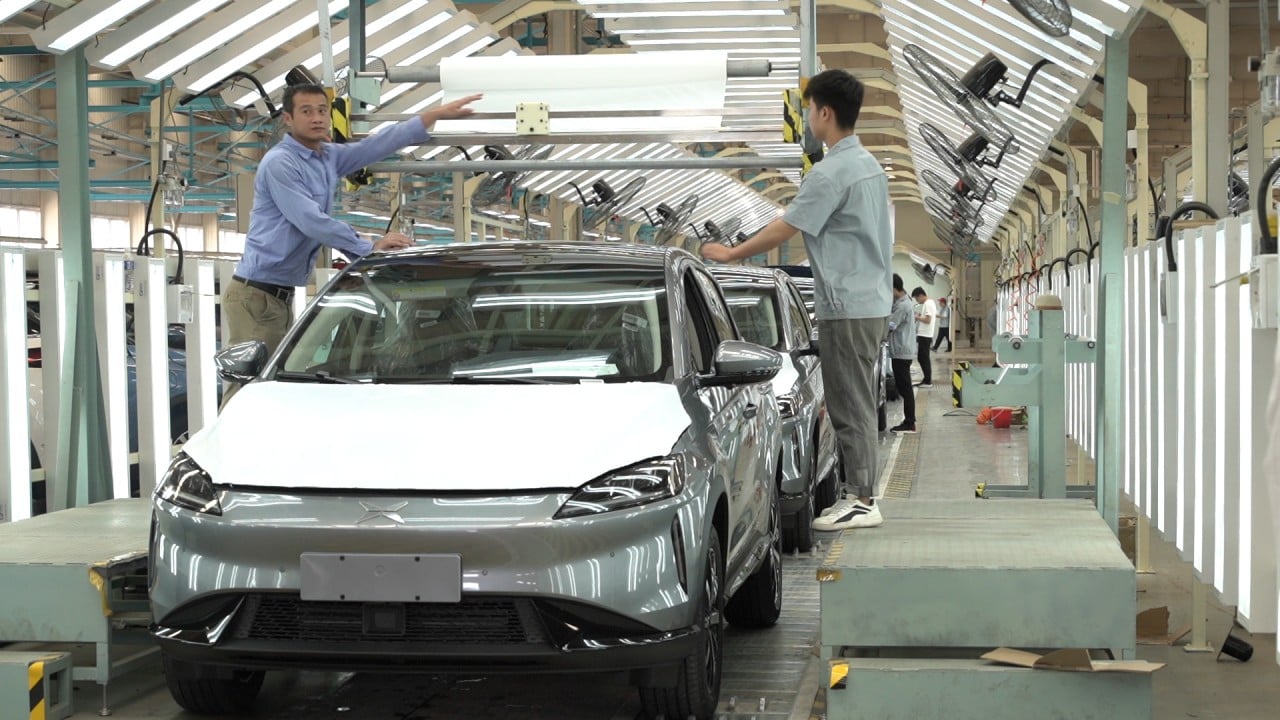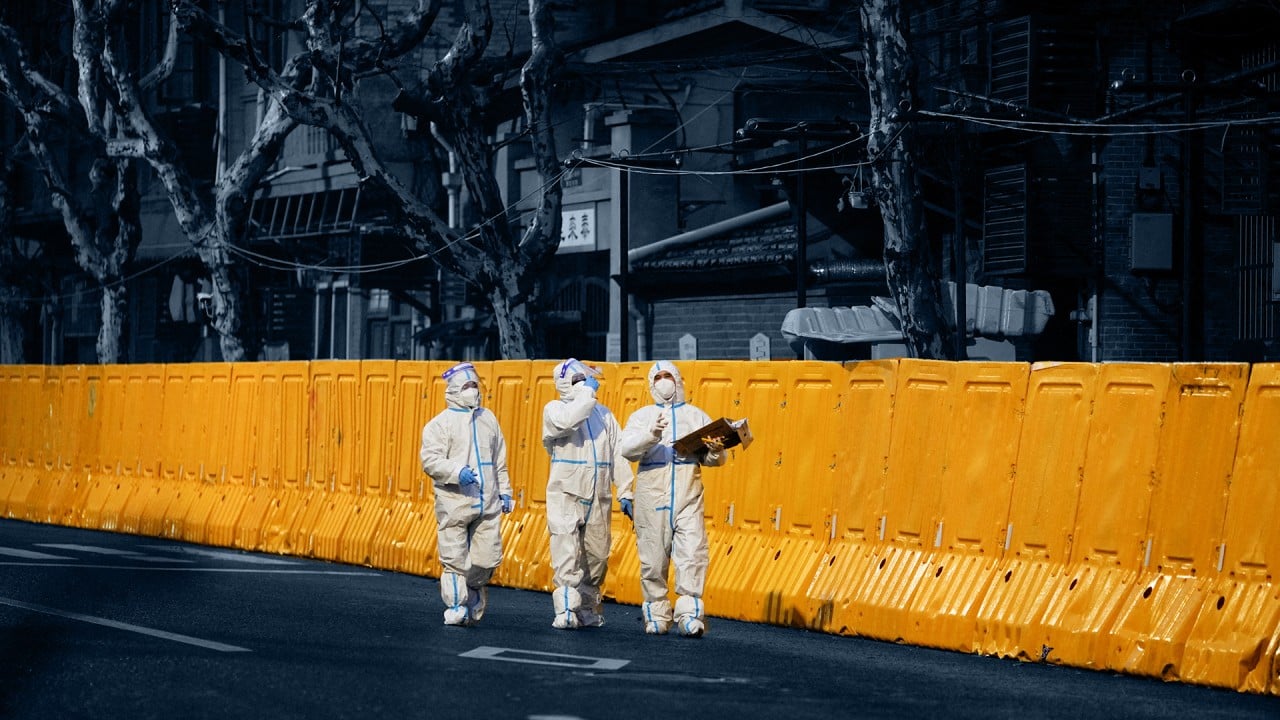
Tesla’s battery supplier CATL takes another U$8.9 billion market hit on accounts delay, surging costs amid China lockdowns
- China’s No 1 lithium-ion battery producer asked to delay publishing its first-quarter results to ensure quality, accuracy
- Stock has retreated 34 per cent this year, shrinking its market value below the 1 trillion-yuan threshold for the first time in about a year last week
The world’s biggest producer of lithium-ion batteries for electric cars said the delay was needed to ensure the quality of the preparation and accuracy of information disclosure for its first-quarter results, according to a Sunday exchange filing. It did not elaborate.
The move came amid supply-chain disruptions caused by citywide lockdown in Shanghai since late March, which has threatened to freeze the nation’s car industry following production halts at facilities run by Xpeng and Tesla, two of its biggest clients.

Shares of CATL, as the company is known, tumbled 6.1 per cent to 390.10 yuan in Shenzhen on Monday as the accounts delay unnerved investors. The company’s market value shrunk below the 1 trillion yuan threshold last week for the first time in about a year after the stock retreated 34 per cent this year.
“The decline in the share price of CATL is related to the downgrade of its stock and the downturn of the overall stock market,” said Bai Wenxi, chief economist at the wealth management firm IPG China.
Despite reporting a 267 per cent surge in earnings to 8.2 billion yuan in the final quarter of 2021, at least three analysts have trimmed their price targets and earnings capacity. Covid-19 lockdowns are pressuring parts logistics and material costs, they added.
Soochow Securities cut its estimated annual earnings for 2022 and 2023 by 5.3 per cent and 7.1 per cent, respectively. Most notably, the broker also trimmed its 12-month price target by a whopping 25 per cent to 676 yuan. That still suggests a 72 per cent upside from current level.
UOB trimmed its price target to 740 yuan from 1,000 yuan on Friday, while Credit Suisse cut it to 600 yuan from 765 yuan.
The lockdown in Shanghai is entering a full month this week, presenting an unprecedented setback for components and parts suppliers. Logistic snarls could send the car industry into a standstill by next month, according to He Xiaopeng, co-founder of Xpeng.
Besides, CATL also faces an escalating cost of lithium, the raw material for EV-battery. The cost has surged faster than the battery producers can pass on to their customers, shrinking profit margins, Gu Huahao, an analyst at Huajin Securities, said in a recent research note to clients.
Still, CATL has been doubling down on its own lithium projects to mitigate the soaring material costs. Last week, it won exploration rights to a lithium clay project in southeastern Jiangxi province. Its reserves of battery and lithium in 2021 will help alleviate cost pressures in the first quarter, Gu added.



